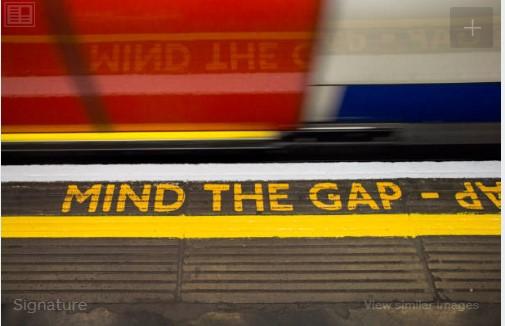Can we mend the gap?


There is a GAP between diversity and inclusivity:
“Diversity is being invited to the party. Inclusivity is being asked to dance.” Verna Myers
We used Team Based Learning (TBL) to mend this gap...
(Image by Alessia Lowcock, 15 years old)
What is TBL?
TBL is a structured form of small-group collaborative learning that emphasises student’s preparation and individual work out of class and application of knowledge and group work in class.
The instructor assigns students strategically into diverse teams of 5-7 that cannot be changed during the year. The pedagogical strategy behind TBL is to prompt prior learning via individual and group testing, and to deepen students’ knowledge and understanding via group collaboration.
TBL in 3 steps: at the start, students are given a closed book individual test, without feedback, on relevant material available the week before the test; then, in joining their team, they reattempt the same closed book test, receive feedback and a group score. By holding them accountable to other members of the group, students tend to prepare before going to class. After the individual and group quizzes, groups are asked to work in parallel to solve a timed common application task and to simultaneously present their answers to receive feedback and the group grade.
Why did we use TBL?
TBL was used for term 2 delivery of a core level 6 module in economics. Term 1 delivery was standard, to enable to compare students' experience. The TBL pedagogy aimed to create an inclusive learning environment and correct the BAME attainment gap identified at level 5, across assessment types (term 1 versus term 2).
How does TBL enable to create an inclusive learning environment?
We think TBL pedagogy offered five crucial tools leading to inclusivity:
- Group formation: we created balanced groups to account for diversity (gender, ethnicity and abilities)
- Group collaboration: team members worked together to solve the same task; we moved around to observe and facilitate collaboration and inclusivity. To create a group identity we organised a team bonding experience (escape room) in term 1, and asked teams to identify their strengths and limitations.
- Active learning: students were not mere passive receiver of knowledge but they were included in the process of inquiry and contextualized learning; they felt listened, and actively searched for feed-forward.
- Team-work responsibility: each member’s contribution was important and was evaluated twice by the teammates via a peer-to-peer anonymous survey on how to enhance teamwork.
- Dialogic feedback: Students received a stream of feedback on quizzes and on application exercises which they could use for the TBL type summative assessment (held on the last day of class)
What are the effects of TBL inclusive environment? In our experience:
- It produces interactive enjoyable learning
- It induces collaborative work
- It reduces BAME attainment gap
How can we be sure of this?
Economic analysis of the panel data grades (at level 5 and at level 6) of two waves of cohorts shows:
- Disappearance of BAME effect at level 6 (present at level 5) on overall final grades
- Significant improvement at level 6 of BAME performance in term 2 (delivered with TBL) relative to term 1
- Significant improvement of BAME performance at level 6 relative to level 5.
STUDENTS’ VOICE:
- Evaluation (EvaSys): in addition to very high EvaSys scores….
“This is the most progressive class. It was made very interesting, interactive, useful and relative. The change in the delivery of the subject has made a big difference. An opportunity to work in a group long term has changed my perspective on group work. The class is so interesting that the time flies.”
“It was such an amazing experience as we all developed skills and shared abilities to make the group work effectively while learning from each other. I recommend it for future final years as it is very productive, not just for class, but also for our future careers.”
“Learning under the TBL pedagogy really helped improve my team working skills and communications, and while elements of the course were very challenging, with collaborative efforts we succeeded. “
“The Team Based Learning programme has been a wonderful experience to learn, work in a team, interact with the class and teachers, present your work etc.”
- Self- reflections: Escape room
“I enjoyed the Escape Room very much. The exercise allowed us to get to know each other better, have fun and learn from it. We definitely worked as a team. We solved the tasks together and helped each other. It was a real team effort.”
“The Escape Room has been a great experience, worth it. It has been fun, it has involved our skills, and it has brought us together. The advantages were to be on a game that was challenging our mind, and outside the university area or time. It created nice memories.”
- Teammate peer to peer anonymous evaluation quotes;
Please change:
“Do the prior readings as it would greatly benefit the group to have all members on the same page in terms of content and would allow members to contribute more whilst having greater knowledge on the subject area.”
“Turn up to the session that take place before the workshops, so that you can take part in the tRAT quiz with the team.”
Please do more:
“Be more confident in your answers and justifications as they're usually correct; this would benefit the team as there might be room for more discussions.”
"You are a quiet member of the team but when you present your ideas they are usually very good and accepted by the rest of the group, I'd suggest to be more vocal about your ideas.”
Thank you because:
“You are always ready to listen, help and collaborate with the team members.”
“You always try to help other team players and always make sure that everyone agrees with answers or decisions.”
How can we explain these results? TBL elicited:
- individual responsibility: the individual and group tests and the peer evaluation motivated students to prepare before class
- group identity and co-responsibility: tackling a common task and sharing a common grade motivated individual to contribute to the success of the team
- Collaboration: because the group work was done in class, and observed by the tutor, students were less concerned about free-riding and more prone to work together for a common goal.
Lessons learnt:
- Inclusive learning: well organised teamwork can improve students’ learning experience and performance
- Innovative assessments: formative and summative and feed-forward can be effective tools to reduce BAME